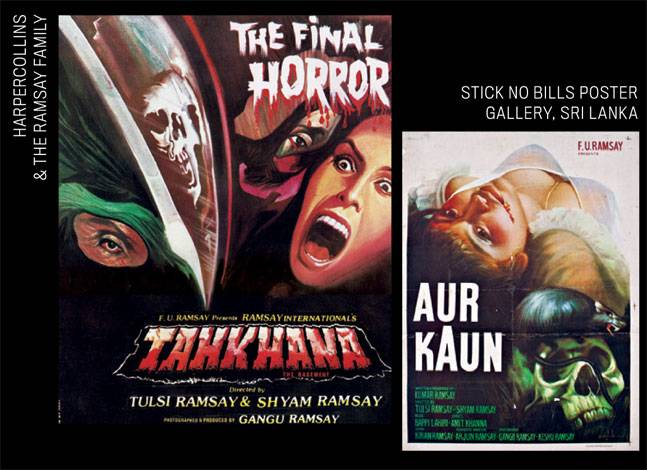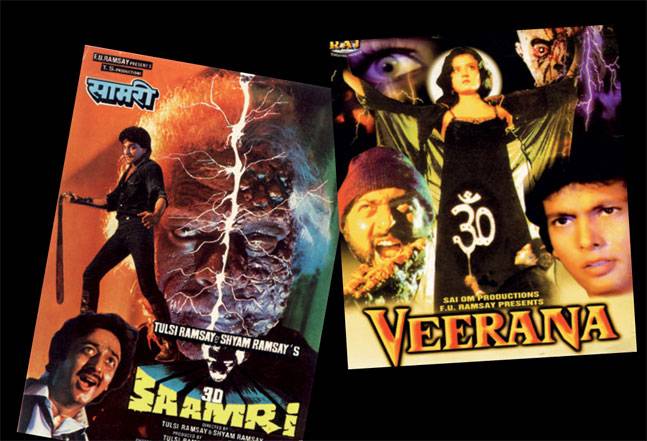Ramsay Brothers
This is a collection of articles archived for the excellence of their content. |
Ramsay Brothers
Rajesh Devraj , Horror first family “India Today” 8/5/2017
Suffering from a huge setback at the box-office, movie producer F.U. Ramsay took a hard decision to slash costs the next time around. That's how he landed up in Kashmir in the off-season with his seven sons, and rented a houseboat to conduct classes in film-making for his brood. Over three gruelling months, he taught them everything he knew.
He'd left Mumbai with his family; he returned with a highly trained film crew that went on to make India's first horror film, Do Gaz Zameen Ke Neeche (1972).
Indian films were never quite the same afterwards, journalist Shamya Dasgupta writes in Don't Disturb the Dead, a forthcoming book about the Ramsays, India's first family of horror. While Hindi cinema had previously ventured into Gothic suspense with the likes of Kamaal Amrohi's Mahal, Do Gaz... was something new: a psychological thriller and scream flick about a husband who returns from the dead to haunt his cheating wife and her lover.
The Ramsays followed up with Darwaza (1978) and other films which made horror a commercially viable Bollywood genre. The Ramsay style blends classic Hammer references with elements from Indian lore, as well as lowbrow comedy, shower scenes and trendy disco music. It's a big unholy mix of influences: Baal meets Mahakaal, vampires are warded off with Om signs and tantriks wear the hooded robes of medieval Christian monks.
The typical Ramsay film is a product of the VCR era, an assemblage in which every scene refers to some film or the other. Veerana (1988) even supplies a meta-narrative with Satish Shah playing a would-be horror filmmaker named Hitchcock who views the world through finger frames.
Thematically, the films are fairly consistent. The plots invariably feature the thakur of a feudal mansion, a convoluted family curse and a monster in the cellar which awakens to terrorise a new generation of screamers. The primal fear evoked here is a horror of the past, of dark secrets best left undisturbed.
Horror films can reveal society's deepest fears and anxieties, so the Ramsay films should perhaps be seen as a mirror of their troubled times. Was it mere coincidence that the Ramsays released Tahkhana the same year that the gates of Mir Baqi's mosque were unlocked in Ayodhya? Or was it a prescient warning about the dangers of poking around in the dingy basements of history? Too late to speculate: the zombie hordes are already upon us with their sharp tridents, hungry for flesh.
-Rajesh Devraj

